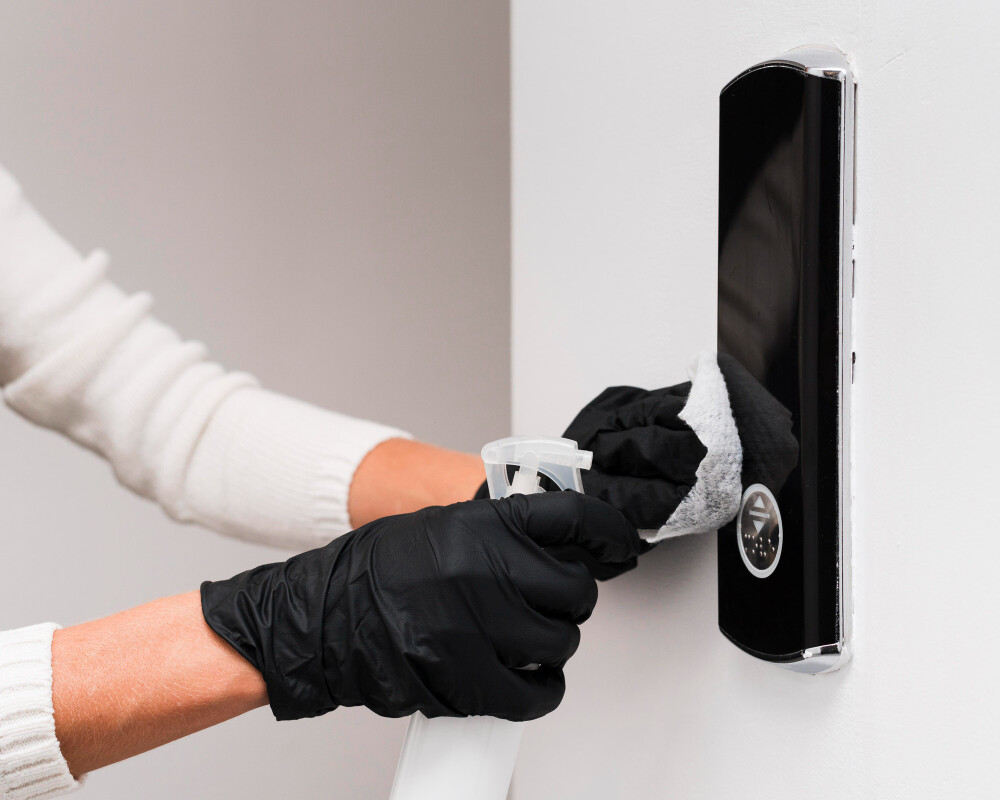Email format error
Email cannot be empty
Email already exists
6-20 characters(letters plus numbers only)
The password is inconsistent
Email format error
Email cannot be empty
Email does not exist
6-20 characters(letters plus numbers only)
The password is inconsistent

NEWS

Understanding the Differences: Door Closer vs Spring Hinge
When it comes to the hardware that keeps our doors functioning smoothly and securely, two essential components often come into play: door closers and spring hinges. These mechanisms might seem similar at first glance, but they have distinct features and functionalities that can significantly impact the performance and longevity of your doors. In this blog, we’ll delve into the differences between door closers and spring hinges, exploring their respective advantages, applications, and how to choose the right one for your needs.
What is a Door Closer?
A door closer is a mechanical device mounted on the door frame that ensures the door closes automatically after being opened. Its primary function is to control the closing speed and force, ensuring the door closes securely and efficiently. Door closers are often used in commercial and residential buildings to enhance security, improve energy efficiency, and ensure compliance with building codes.
Key Features of Door Closers:
Adjustable Closing Speed: Most door closers come with adjustable settings that allow you to control the speed at which the door closes. This is particularly useful in high-traffic areas where you might want to slow down the closing speed to avoid accidents.
Latching Speed Control: Door closers often have a feature that controls the final few inches of the door’s travel, ensuring that it latches securely without slamming shut.
Durability: Door closers are designed to handle the repetitive stress of daily use, making them ideal for high-traffic areas.
Customization: With various models available, door closers can be customized to suit different door sizes, weights, and opening angles.
Advantages of Door Closers:
Enhanced Security: By ensuring that doors close completely and securely, door closers help maintain the security of a building and prevent unauthorized access.
Improved Energy Efficiency: By closing the door automatically, door closers help maintain the internal climate of a building, reducing the need for heating or cooling.
Compliance with Regulations: Many building codes require the use of door closers to ensure that fire doors close automatically in the event of a fire.
What is a Spring Hinge?
A spring hinge, also known as a self-closing hinge, is a type of hinge that incorporates a spring mechanism to automatically close the door after it has been opened. Unlike door closers, which are mounted on the door frame, spring hinges are installed on the door itself. They are commonly used in residential and light commercial applications where automatic closing is desired but where the more complex mechanisms of door closers might not be necessary.
Key Features of Spring Hinges:
Built-in Spring Mechanism: The spring inside the hinge provides the force needed to close the door, eliminating the need for additional hardware.
Adjustable Tension: Many spring hinges allow for tension adjustments to control the closing force and speed, though this adjustment is typically less precise than that of door closers.
Simplicity: Spring hinges are simpler to install and maintain compared to door closers, making them a popular choice for DIY projects.
Aesthetic Appeal: Because they are integrated into the hinge itself, spring hinges offer a cleaner look without the need for external hardware.
Advantages of Spring Hinges:
Cost-Effective: Spring hinges are generally less expensive than door closers, making them a budget-friendly option for automatic door closing.
Ease of Installation: With no need for additional mounting hardware, spring hinges are straightforward to install and require less expertise.
Minimal Maintenance: Spring hinges are relatively low-maintenance and do not have the complex components that can wear out in door closers.
Door Closer vs Spring Hinge: Key Differences
When deciding between a door closer and a spring hinge, it’s important to consider the specific needs of your space. Here’s a comparison of their key differences:
Mechanism and Installation:
Door Closer: Mounted on the door frame, often requiring professional installation due to its complexity.
Spring Hinge: Installed directly on the door, usually easier to install and adjust.
Control and Adjustment:
Door Closer: Offers precise control over the closing speed and force, with multiple adjustment points.
Spring Hinge: Provides basic adjustment of closing force and speed, but less precise than door closers.
Durability and Application:
Door Closer: Ideal for high-traffic areas and commercial settings due to its durability and adjustability.
Spring Hinge: Best suited for residential or light commercial applications where the simplicity of installation and cost are major factors.
Aesthetics:
Door Closer: Typically visible on the door frame, which might affect the overall aesthetic of the door.
Spring Hinge: Less visible, as it is integrated into the door hinge itself, offering a cleaner look.
Choosing the Right Mechanism for Your Door
To make an informed decision, consider the following factors:
Traffic Volume: For high-traffic areas, a door closer may be more suitable due to its durability and adjustability. For lower-traffic areas, spring hinges might be sufficient.
Budget: If cost is a major concern, spring hinges offer a more economical solution, while door closers provide more features and flexibility at a higher price point.
Aesthetic Preferences: If maintaining a clean look is important, spring hinges are less obtrusive. However, if you need advanced control over the door’s operation, door closers are worth the investment.
Building Code Requirements: Ensure compliance with local building codes, which may mandate the use of door closers, especially for fire-rated doors.
Conclusion
In summary, both door closers and spring hinges serve the important function of ensuring doors close automatically, but they do so in different ways. Door closers offer precise control and are suited for high-traffic or commercial environments, while spring hinges provide a simpler, cost-effective solution for residential or light commercial use. By understanding the key differences and considering your specific needs, you can make an informed choice that enhances the functionality and appearance of your doors.
Whether you opt for a door closer or a spring hinge, the right choice will contribute to a more secure, efficient, and aesthetically pleasing space.
